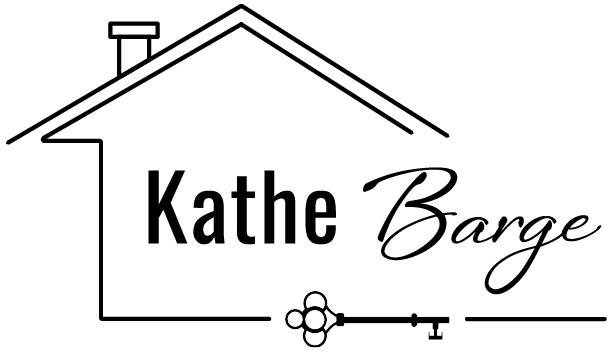by Kathe Barge | Mar 30, 2022 | Buyers, Buying Conditions, Contracts, Helpful Tips, Inspections, Listings, Market Trends, Property Updates, Property Value, Real Estate, Sellers

The market is so hot right now and we aren’t having any luck getting a home – should we waive home inspections?
You are correct –the market under $1million is very fast paced right now, and in many instances, the winning bidder has waived home inspections. That does seem to be what it may take to “win” right now but I cannot recommend that you make that choice. Now several months into the “waive inspections” craze we are starting to hear stories about the expected fallout from this hasty decision.
From the seller’s perspective, I highly recommend that you have your home pre-inspected and repair or disclose the relevant items. While an inspection might cost you upwards of $500, it is money well spent toward a smooth closing. If you have pre-inspected your home and provide the report to prospective buyers, you are doing your part to make sure your buyer is well-informed. In the absence of a pre-inspection, I do not recommend that you accept an offer from a buyer who has not inspected your home. I have started hearing from home inspectors that disgruntled buyers are seeking post closing inspections to find problematic items and sue the sellers for failure to disclose. You don’t want that to be you. If you have not pre-inspected, we can discuss strategies to allow a buyer’s inspection and still protect you.
From a buyer’s perspective, as we all imagined would happen, the post-closing stories are starting to mount about buyers who purchased without an inspection and are now having all sorts of forseeable issues – roofs leaking, furnaces failing… If you are going to make this risky choice, you need to do so knowing that you will be assuming the risk of potentially tens of thousands of dollars of issues The contract specifically states that your inspection is your opportunity to find issues – if you waive that, you will be fighting an uphill battle to recover against anyone. Before you make an offer without an inspection contingency, you really do need to ask yourself if you are prepared to absorb those costs!
[contact-form-7 id="115311" title="Get More Information Form"]
by Kathe Barge | Feb 2, 2022 | Buyers, Buying Conditions, Inspections, Listings, Property Updates, Property Value, Real Estate, Sellers, Selling Conditions

Sometimes it seems like everything is breaking around our house and we get behind on repairs. Isn’t there some level of wear and tear buyers of “previously enjoyed” homes are expecting to have to accept?
The process of selling and buying a home involves many fine lines. How far do you take preparing your home for sale? Do you really need to address all of the items suggested by your agent, the home stager or the home inspector who did a pre-inspection? Do you really have to attend to everything your family has broken or worn out over the years
Anything that could come up on an inspection, if you know about it, really must be repaired or disclosed. My vote is repair. Even with items that are very obvious, when an inspector gets involved, he may blow the issue out of proportion and something that might have cost you $1000 to repair before you listed ends up costing you $3000 on the inspection request. If its something an inspector might find, you can bet he will find it and you will be expected to cover the cost of repair anyhow, so you might as well repair upfront.
Many buyers actually get quite nervous during the home inspection (also known as buyers remorse). If you happened to have gotten one of these buyers, it is possible that they could walk away from your deal if the inspection concerns feel too weighty to them. After you actually receive and negotiate the offer, the last thing you want to do is lose the buyer over items that you could have fixed but didn’t think anyone would notice or care about! In today’s market, they notice, they care. Sometimes they are willing to let you pay for the repair. Sometimes they just walk. Don’t take any chances. If you suspect it is likely someone would seek a repair, get it done!
Buyers, as much as I advocate for sellers to take care of the wear and tear items on their homes, it is important for you to be reasonable on your inspection requests as well. If you see an item that needs to be fixed while you are touring the home, take that into account when you make your offer and do not revisit it on the inspection. Inspection requests are supposed to be for items you didn’t know about and didn’t have a chance to adjust for in making your offer. Again, its a fine line buyers also walk in deciding what are fair and appropriate inspection requests of a seller.
[contact-form-7 id="115311" title="Get More Information Form"]
by Kathe Barge | Oct 28, 2019 | Blog, Sellers, Sellers-Contracts
We had some prior water leakage in our basement but its been dry for years – do we need to disclose that in our disclosure?
 We live in a community of older homes and there are likely skeletons hanging in most of our closets (if not on our front porch this time of year), and yes, it is important to fully disclose the history of your home. In some cases, prior water leaks may lead to mold development that you may or may not be able to see and it is important for buyers to be able to evaluate this possibility. But in any event, the problem could recur and if you fail to disclose and the problem recurs, you could find yourself in the middle of a lawsuit for fraud.
We live in a community of older homes and there are likely skeletons hanging in most of our closets (if not on our front porch this time of year), and yes, it is important to fully disclose the history of your home. In some cases, prior water leaks may lead to mold development that you may or may not be able to see and it is important for buyers to be able to evaluate this possibility. But in any event, the problem could recur and if you fail to disclose and the problem recurs, you could find yourself in the middle of a lawsuit for fraud.
Required disclosures are of course not limited to water issues. The disclosure is going to want to know about the history of your roof and gutters, the history of any wood-boring insects that have affected your property, the history of any structural issues or issues with your driveway…, the history of any fire or ice damage, the history of your remodeling, the history of any property flooding, the history of any hazardous substance testing (mold, radon, lead), and of course the current status of all elements of the property.
The disclosure is your friend. Properly worded, even the most scary problems can be disclosed and managed. And if you are aware of the issue (past or present), properly disclose it and take it into account when pricing your home, you can sell your home knowing that the issue is not going to raise its ugly head in the future! I am more than happy to help you with that when you are ready to list your home! Not thinking about moving any time too soon? Be sure to keep a file of all of the repairs you have made over the years so when you eventually do sell you can refer back to your file and easily disclose the items you have repaired over the years. Keep in mind, the more of the skeletons in your closet that you disclose, the lower the bills from inspection related items will be and the lower the risk will be of the buyer calling you later with undisclosed historic issues!
[contact-form-7 id="115311" title="Get More Information Form"]
by Kathe Barge | Sep 17, 2019 | Blog, Inspections, Sellers
We want to sell our home “as is.” Is this possible?
 If everything comes together perfectly, then yes, it is possible to sell your home “as is” — here is what you will need to do to make that happen!
If everything comes together perfectly, then yes, it is possible to sell your home “as is” — here is what you will need to do to make that happen!
First, you must start by having your home pre-inspected. Very few buyers would consider waiving inspections if the home has not been a qualified home inspector, with reports provided to prospective buyers. You will then need to take the inspection and use it to thoroughly complete the disclosure, making sure that you clearly identify all deficiencies that you aren’t planning to repair. If there are larger items such as a high radon reading, suspected mold or knob and tube wiring, you should at a minimum get estimates for the repairs. All of these things, the disclosure, the inspection reports, and the estimates, all need to be provided to prospective buyers.
The second step to a successful “as is” sale is to price the home for the condition you now know it to be in. The advantage to this approach is being able to tell buyers that the price reflects known condition. You will be far less likely to have requested price adjustments later for unknown issues. It is very important that your chosen price reflect the condition you now know your home to be. For example, if your home has knob and tube wiring, you can’t expect to receive the same price as a similar home that had been rewired. Rewiring is generally speaking a $20,000 – $40,000 project.
Finally, a great marketing strategy is key. To truly achieve an “as is” sale your agent will need to drive in significant traffic and generate multiple offers so that the bidding buyers are willing to waive all inspections in order to be the winning bidder.
I just orchestrated this approach on one of my listings and it worked perfectly. A seller I represented wanted an “as is” sale, did the pre-inspections, obtained estimates and priced very well. We ended up with 4 offers, inspections waived, and ended up selling at nearly 10% over list price! The up-front effort was well worth the end-result!
[contact-form-7 id="115311" title="Get More Information Form"]
by Kathe Barge | Aug 19, 2019 | Blog, Sellers, Sellers-Contracts
I spent a lot of money on my lighting fixtures and really don’t want to leave them in my home when I sell it – can I take them with me?
 This question comes up more often than you might think! Sometimes the fixture is a family heirloom or was a gift for a special occasion. Maybe it has followed you from home to home and you can’t imagine a home without it. Maybe you just absolutely love it. Or maybe it was very expensive and you just don’t want to leave it behind.
This question comes up more often than you might think! Sometimes the fixture is a family heirloom or was a gift for a special occasion. Maybe it has followed you from home to home and you can’t imagine a home without it. Maybe you just absolutely love it. Or maybe it was very expensive and you just don’t want to leave it behind.
Whatever the reason, you absolutely can take a favorite fixture, keeping in mind some important guidelines. First, the best thing you can do is to remove the fixture before listing your home and replace it with a stylish but not to pricey replacement. If you are like nearly every seller out there, you will want top dollar for your home and that will be much harder to achieve, so be sure to find something that is stylish – I can help with that. It is far better that the buyer never see the fixtures you want to keep – they might attach to them and removing them after the buyer has seen them could jeopardize the entire deal.
Sometimes, however, it is not possible to remove the fixture before listing the home. Occasionally fixtures are too big or fragile and require special crating to move them. If this is the case with your fixture and there is no way it can be removed in advance of listing your home, it is critical that you disclose this upfront. It should be listed as an exclusion in the MLS and in the property brochure. Hopefully with upfront disclosure the buyer will not attach and you will be able to remove them before you close. You will need to cap the fixture outlet of course – you cannot simply leave the wires hanging out of the ceiling! Be certain before you sign an Agreement of Sale that the fixture is clearly listed as exclusion.
Leaving the lights up and listing them as exclusions is clearly easiest for you, but keep in mind that if you are expecting a premium price for your home, a buyer may balk at you stripping lights from the home. For this reason, removing the lights pre-listing and replacing them with stylish choice is the best alternative!
[contact-form-7 id="115311" title="Get More Information Form"]
by Kathe Barge | Jun 13, 2018 | Blog, Buyers, Contracts, Inspections, Real Estate, Sellers
We closed on our new home recently and when we went on the walk through, the seller had not completed the inspection repairs that they had agreed to do and didn’t seem to think was an issue. Your thoughts?
 I have noticed a trend lately away from respecting contracts. I’m not sure if its because consumers don’t understand what they are signing, are too busy to keep everything straight or just don’t care. Whatever the reason, the real estate contract and its addendums are what makes a real estate transaction work. If you want to sell your home, you need some kind of document that binds the buyer to your home so that they don’t just walk away, leaving you holding a home you just moved out of and unable to close on your new home. It is equally important to the buyer – they need a document by which a seller is actually bound to sell their home so that the buyer is also not sitting on the curb waiting to unload the moving van and unable to get the seller out (and yes, real estate is specific performance – if you sign a contract to sell, you must sell).
I have noticed a trend lately away from respecting contracts. I’m not sure if its because consumers don’t understand what they are signing, are too busy to keep everything straight or just don’t care. Whatever the reason, the real estate contract and its addendums are what makes a real estate transaction work. If you want to sell your home, you need some kind of document that binds the buyer to your home so that they don’t just walk away, leaving you holding a home you just moved out of and unable to close on your new home. It is equally important to the buyer – they need a document by which a seller is actually bound to sell their home so that the buyer is also not sitting on the curb waiting to unload the moving van and unable to get the seller out (and yes, real estate is specific performance – if you sign a contract to sell, you must sell).
There are some basic principles to keep in mind that apply to all contracts. Sellers, if you include something on your disclosure, it is important that you actually leave it behind for the buyer. The stove and dishwasher are obvious, but what about garage door openers? When you are listing your home, take the time to be sure that you correctly list what is included – misplace a garage door opener and you are contractually required to buy a new one for the buyer.
If you agree to fix something during an inspection negotiation, then yes, you must actually get it fixed. Its not ok to have the buyer show up for the walk through and find out you haven’t taken care of the agreed upon repairs. What you signed is legally binding – do what you said you will do or be prepared to give a hefty last minute credit to the buyer. If you do get the items fixed, be sure to pay your bill before closing! These repair bills are not the buyers’ responsibility and its also not ok to agree to make a repair and then stick the buyer with the bill.
And remember, the contract requires that your home be in the same condition it was in when the buyer made you the offer. If you break something, you will need to fix it prior to closing. At 13 pages, it is a lengthy document but it is important that you understand what you have agreed to do. We can’t all be attorneys, so be sure to hire a realtor that you have confidence will thoroughly explain what you have signed and help you to be a good seller and honor all of its terms!
[contact-form-7 id="115311" title="Get More Information Form"]
by Kathe Barge | Jun 5, 2018 | Blog, Buyers, Inspections, Real Estate, Sellers
From what we hear, it seems buyers are very picky on home inspections these days. What should a seller expect?
 What a Seller needs to be prepared for on a home inspection needs to be evaluated in the context of the entire deal! Both buyers and sellers need to keep things in perspective. If a Buyer got a great deal on a home, then the inspection should be more about major things that the Buyer could never have known about. If a Seller got top dollar for a home, the Seller should expect to be very generous on the inspection resolution with the buyers. Sellers do need to expect that a buyer paying close to asking price will expect the inspection items to be addressed by the Seller unless the Seller had disclosed them on the Disclosure.
What a Seller needs to be prepared for on a home inspection needs to be evaluated in the context of the entire deal! Both buyers and sellers need to keep things in perspective. If a Buyer got a great deal on a home, then the inspection should be more about major things that the Buyer could never have known about. If a Seller got top dollar for a home, the Seller should expect to be very generous on the inspection resolution with the buyers. Sellers do need to expect that a buyer paying close to asking price will expect the inspection items to be addressed by the Seller unless the Seller had disclosed them on the Disclosure.
The Disclosure is a Seller’s friend. What a Seller discloses is supposed to be outside the scope of inspection requests. These are items that the Buyer should be taking into account when making their initial offer. Therefore, when filling out the Disclosure, Sellers will want to review it carefully to be sure it is thorough. Inspectors do not miss anything these days, so it will be far less of a financial blow to a seller if all possible issues are noted up front.
Of course, a pre-inspection may be a Seller’s best approach for a smooth transaction for all parties. While a seller will spend approximately $400 up front, it gives you a chance to repair or disclose the issues before they possibly destroy a deal. Remember, if buyers and sellers can’t come to a resolution about inspection concerns, the deal is terminated and both parties move on. Sellers, you obviously want to sell or you wouldn’t be undergoing the joy of preparing your home for showings. Keep the big picture in mind and understand that unless you are giving your home away, your buyer will expect you to fix what you didn’t disclose. Don’t like the sound of that? Pre-inspect so you know what you will have to address upfront.
[contact-form-7 id="115311" title="Get More Information Form"]
by Kathe Barge | Jul 13, 2017 | Blog, Buyers, Contracts, Inspections, Listings, Market Trends, Real Estate, Sellers, Sellers-Contracts, Sewickley
Why have so many deals fallen apart this spring? We watch the market and see homes that sell and then come back on the market – what is happening?
You have unknowingly picked up on one of the flaws in the Pennsylvania Standard Agreement for the Sale of Real Estate. In the inspection contingency contained in this agreement, the buyer has the unilateral right to terminate the agreement of sale if they find any condition in a home inspection unsatisfactory to them. It does not have to be a major defect as it did in prior years. It does not have to be a safety related concern. It does not have to rise to a particular threshold of cost to repair. ANY condition whatsoever that they find unsatisfactory – a scratch on a floor, a dented garage door, a stain on a carpet — and they can terminate. They do not need to give a seller an opportunity to repair the item – they can just say “sorry, we don’t want your house.” They get their hand money back and the home is back on the market.
Unfortunately, this year buyers have begun to abuse this right to terminate, treating it like an option to buy a home. And when they do this, it stigmatizes the home for future buyers. I have seen deals terminated for items as simple as non-operational dimmer switches and puddles in the driveway, without giving the sellers the opportunity to repair. In other words, these are not serious buyers, and something they liked more probably came on the market. They terminate, wasting everyone’s time and energy.
This is a terrible trend, but sellers, you don’t need to sit back and let this happen. When negotiating an offer on your home, you can negotiate any term, and you would be well advised to indicate that buyer’s right to terminate before even asking the seller to repair should be stricken from the agreement. The buyer is still protected because they retain the right to terminate if the seller refuses to make the desired repairs, but this solution provides a more appropriate playing field for all parties.
[contact-form-7 id="115311" title="Get More Information Form"]
by Kathe Barge | Jul 6, 2017 | Blog, Buyers, Listings, Marketing, Pittsburgh, Real Estate, Sewickley
Why don’t realtors use plain language to advertise their listings? How are we to be able to translate what they write so that we know what a home really has to offer?
The first step in selling a home is marketing that home, and sometimes the brutal truth is just not going to attract a buyer. We figure that if we can at least get you to explore the possibilities, that there is a chance of a sale. “Cozy” sounds much more appealing than “small”, “motivated seller” is less alarming than “the seller needs a sale now” and “awaits your vision” is far more intriguing than “this place needs a complete overhaul.” I’ve included a translation guide to some of our more popular phrases to aid you in understanding “realtor-speak” as you peruse our listings!
- Complete Renovation: the home has had a top to bottom overhaul and nearly everything is new within the past few years
- Mature Landscaping: large trees, but it could border on overgrown
- Secluded: there is no one anywhere to be found
- Historic: old, with windows that don’t open, don’t stay open, don’t shut or don’t lock
- Original: everything is at least 50 years old
- Investment Opportunity: you’re going to need to gut this one to the studs
- Needs TLC – another complete rehab needed
- Custom Window Treatments: early 90s, expensive, teal or rose colored draperies
- Must see Inside: zero curb appeal
- Bonus Room – no one knows what to do with this space
- One Car Garage – you might get your Suburban in, but forget about opening the doors once inside
- Up & Coming Neighborhood – this home is next to the train tracks
- Desirable Neighborhood – you’ll be paying more for this house because people love the neighborhood
- As Is – inspect before making your offer – the seller won’t be fixing anything
- Unique – you might have a hard time reselling this one
- Close to the Village – a 10 minute drive by car
- Walk to Village Shops – might be possible, but who has time?
[contact-form-7 id="115311" title="Get More Information Form"]
by Kathe Barge | Sep 1, 2016 | Blog, Contracts, Inspections, Listings, Marketing, Pittsburgh, Real Estate, Sellers, Sewickley, Sewickley Herald
Dear Kathe,
We have a very old (25 years) furnace.. It is still working well and we don’t have the cash to replace it. We are planning to sell our home next year. What advice do you have?
A 25 year old furnace is a very old furnace, well beyond the useful life expected of such equipment. If a buyer makes an offer on your home and then finds out how old your furnace is, there is a very high likelihood that they will be asking you to buy a new furnace as part of their inspection response. There are a few things you can do to set yourself up for a positive outcome.
First, when you complete your seller disclosure, be sure to write on the document that the furnace is past the end of its useful life and may need to be replaced soon. Price your home accordingly and be sure that your agent highlights to buyers agents that you have priced your home at a lower price point because of its older mechanicals. This will prevent the buyer from expecting you to buy them a new furnace – they should take the age of the furnace into account when making their offer.
Second, put a home warranty on your home when you list it. This will provide coverage to you should the furnace break while you own the home and will give the buyer 12 months of coverage should anything happen in their fist year of ownership (and it is renewable).
Finally, consider buying a new furnace. Many contractors are willing to accept payment at closing if you make arrangements for this upfront. With a new furnace you can ask more for your home and are more likely to draw more enthusiasm form the buyers who do see your home.
by Kathe Barge | Jul 14, 2016 | Blog, Home Staging, Inspections, Listings, Marketing, Pittsburgh, Real Estate, Sellers, Sewickley, Sewickley Herald
Dear Kathe,
Friends of mine just had the sale of their home fall through because of a home inspection. How can that be prevented?
Yes – sellers should have their home pre-inspected before listing to prevent these kinds of issues! Finding a buyer and agreeing on a purchase price is only one small component of a real estate transaction and yet it is often all that sellers focus on. What happens between then and closing, however, is often the more difficult part of the process. Issues with a home uncovered on an inspection often cost a seller thousands in unexpected repairs and when sometimes even result in a terminated transaction. Inspectors are incredibly thorough (sometimes even finding problems that aren’t problems) and so every home seller should anticipate that the home inspector will find deficiencies and that the buyer will expect correction.
All home sellers should seriously consider having their homes pre-inspected. For as little as $250 – $500 for a basic pre-inspection you will quickly have an insiders view of how a buyer’s inspector will assess your home. Use the inspection as a maintenance check list – find a handyman to come in and fix all of the little things so that they don’t come up again on a buyer’s inspection. If there are larger items that you do not have the ability to repair, such as a roof nearing the end of its useful life, get an estimate or two for the repair or replacement. Note the issue on your disclosure and include a copy of the estimate. This should prevent you from having to credit the buyer for the repair later – buyers are supposed to review the disclosure and take any disclosed items into account in making their offer to you.
Of course, if your inspection is good or just has a lot of little items that a handyman can fix, attach the handyman’s receipt showing the repair provide a copy of the inspection in the house for buyers to see with a note indicating that the home has been pre-inspected and repaired and that they buyer can buy with confidence knowing that they are buying a house in great shape! In a town full of older and aging homes, this will really help your marketing!
So before you list your home – consider a pre-inspection. It will give buyers the confidence they need to move ahead with a purchase, may combat concerns that there are likely problems that would lower their initial offer to you, and will hopefully result in a smooth transaction once you do have your home under agreement.
by Kathe Barge | Jun 18, 2015 | Blog, Inspections, Real Estate, Sellers, Sewickley, Sewickley Herald
Dear Kathe,
I’ve heard that agreements on many homes have fallen through lately from home inspections – why is that?
Our market has traditionally been one where buyers know they are buying old homes and allow the seller some leeway in not presenting a “perfect” home from an inspection standpoint. However, in many parts of the country, this is not the case. Sellers are expected to remedy all issues noted by home inspectors prior to closing. As more and more people migrate here from other parts of the country, our prices are going up, but so are the buyers’ expectations as to a seller’s responsibility for concerns discovered on a home inspection. At the same time, inspectors are getting significantly more particular. And so yes, it is absolutely possible to have purchased a home only two years ago and have new concerns arise that clearly existed and were overlooked when you bought your home. And yes, it is equally possible that you will be expected to fix them and if you refuse, your sale might fall through.
This can often leave a seller feeling like they are the unlucky one who got stuck holding the “hot potato.” As the years pass, the list of “hot button” issues mounts and if you are the owner when the issue is discovered, you will be the one paying the bill even though the home was bought and sold many times in advance of your ownership. These hot button issues include items such as radon, mold, damp basements, lead water lines, asbestos (fireplace inserts, duct tape, pipe wrap or flooring) knob and tube wiring and pushmatic electric panels. If your home has any of these issues, you should figure you will be the one footing the bill and address them before they become an issue on a home inspection.
The best way to prevent an inspection fall through or an unexpected bill for defects is to have your home inspected before you put it on the market. A pre-inspection will allow you the opportunity to fix those items that can be fixed and disclose the rest to save yourself from a laundry list of requests. Be sure not to ignore the small stuff that comes up or that you know is wrong. For example, when I list a home, I specifically ask sellers if all of their windows open, stay open, shut and lock, and if any are cracked or have broken seals. Sellers more often than not disclose no issues with their windows and yet it is one of the most frequent inspection deficiencies. Take the time to do your homework – get your home inspected – repair or disclose any possible concerns – and save yourself from a long last-minute repair list and potentially even from losing your sale.
by Kathe Barge | Oct 31, 2013 | Blog, Listings, Marketing, Real Estate, Sellers, Sewickley Herald
We live in an old town, with homes dating back to the early 1800s. With old homes comes a lot of history, and sometimes a ghost story or two. If your home has a history of paranormal activity (real or imagined), or someone has died in the home, do you have a duty to disclose that to potential buyers? While approximately half of our states do require disclosure of paranormal activity, as of yet, Pennsylvania is not one of those states. However, a case in Delaware County where the seller failed to disclose a murder/suicide that happened in the home may change that in PA.
Many other states have adopted far more comprehensive disclosure laws. In our neighboring New York, paranormal activity must be disclosed. In California, any death in a home in the preceding three years must be disclosed. And in Massachusetts, the law is even more comprehensive, requiring disclosure of paranormal activity, as well as whether the home was ever the site of a felony, suicide or homicide or whether someone with HIV ever lived in the home.
Our disclosure simply asks whether there are any material defects, which is defined as anything that could significantly impact value. Material defects would clearly include any major problems with the physical structure, as well as pending tax assessments and disputes over property boundaries with adjoining landowners. But what about those ghostly apparitions or eerie cries in the night? According to a well-known California appraiser who specializes in diminution of value, a well-publicized murder can reduce value by 15% – 35%. Does a ghost reduce a home’s value and need to be disclosed? Right now, the answer in no in Pennsylvania, although sellers wishing to avoid lawsuits would be well advised to disclose anything that could be seen as stigmatizing a property, including paranormal activity and deaths in the home. For some buyers, value actually increases with the prospect of living among ghosts. But before disclosing the ghost in your attic, be sure there isn’t a rational explanation for what you are experiencing.
Buyers, if you don’t want to move into a haunted home, what can you do to protect yourself in the absence of required disclosure? You can start with the internet – do a thorough search of the property address and sellers’ names. That will likely turn up information on any more recent concerns with the property. Some recommend burning sage to rid the home of spirits, and if all else fails, you can always call Ghostbusters!
by Kathe Barge | Jun 5, 2012 | Blog, Contracts, Inspections, Real Estate, Sellers, Sellers-Contracts, Sewickley Herald
If you have bought or sold a home in the past 15 years then you have come across our (now very lengthy 6 page) Seller Disclosure. The Disclosure is the document where, as required by law, the seller discloses what they know about the property that they are selling. Sellers – the Disclosure is your friend – it is your best insurance policy against future problems in the deal or lawsuits after the fact – take the time to fill it out completely.
Right now, if you are like most home owners, you are probably thinking “I maintain my home – its in great shape.” Or maybe “its an old home – old homes have problems – that’s what you get when you own an old home.” You might be surprised to learn that what you know and fail to disclose could present future liability to you.
What might you not be thinking of? The list is endless – some quick examples follow. Ever have water leak into the basement that you thought you fixed? The disclosure asks if you have ever had water enter the basement. Even if it seems fixed, you must still disclose that it happened – failure to do so could result in a lawsuit if the problem recurs when the buyer moves in. How about windows that are painted shut, don’t stay open or have broken seals? Failure to disclose these sorts of issues can cost you thousands when the home inspector inevitably finds them – if you disclose them upfront, the buyer cannot object to their presence later. How about bathrooms that do not have exhaust fans to the exterior? Bathrooms, kitchens or garages without GFCI plugs? Staircases without handrails? Cracked pavement in sidewalks or driveways? Non-fire rated doors leading into attached garages? All of these things seem like non-issues when you live in a home but if not disclosed, can cost you thousands in inspection repairs.
And don’t forget disputes (or what could become a dispute). Is your fence just a little bit over the property line? Disclose, or you could find yourself having to pay to move the fence prior to closing. Do you have liens against your home, such as tax or contractor liens? Failure to disclose could cost you thousands in compensatory damages to your buyer if the closing is held up as the closing company tries to address the liens and your buyers find themselves having to store their belongings and live in a hotel.
If you are selling your home, it’s a good idea to sit down with your experienced real estate agent and make sure you have thought through all of the possible items that need to be disclosed. If you take the time to be thorough, it is your best insurance policy against future problems.








 We live in a community of older homes and there are likely skeletons hanging in most of our closets (if not on our front porch this time of year), and yes, it is important to fully disclose the history of your home. In some cases, prior water leaks may lead to mold development that you may or may not be able to see and it is important for buyers to be able to evaluate this possibility. But in any event, the problem could recur and if you fail to disclose and the problem recurs, you could find yourself in the middle of a lawsuit for fraud.
We live in a community of older homes and there are likely skeletons hanging in most of our closets (if not on our front porch this time of year), and yes, it is important to fully disclose the history of your home. In some cases, prior water leaks may lead to mold development that you may or may not be able to see and it is important for buyers to be able to evaluate this possibility. But in any event, the problem could recur and if you fail to disclose and the problem recurs, you could find yourself in the middle of a lawsuit for fraud. If everything comes together perfectly, then yes, it is possible to sell your home “as is” — here is what you will need to do to make that happen!
If everything comes together perfectly, then yes, it is possible to sell your home “as is” — here is what you will need to do to make that happen! This question comes up more often than you might think! Sometimes the fixture is a family heirloom or was a gift for a special occasion. Maybe it has followed you from home to home and you can’t imagine a home without it. Maybe you just absolutely love it. Or maybe it was very expensive and you just don’t want to leave it behind.
This question comes up more often than you might think! Sometimes the fixture is a family heirloom or was a gift for a special occasion. Maybe it has followed you from home to home and you can’t imagine a home without it. Maybe you just absolutely love it. Or maybe it was very expensive and you just don’t want to leave it behind. I have noticed a trend lately away from respecting contracts. I’m not sure if its because consumers don’t understand what they are signing, are too busy to keep everything straight or just don’t care. Whatever the reason, the real estate contract and its addendums are what makes a real estate transaction work. If you want to sell your home, you need some kind of document that binds the buyer to your home so that they don’t just walk away, leaving you holding a home you just moved out of and unable to close on your new home. It is equally important to the buyer – they need a document by which a seller is actually bound to sell their home so that the buyer is also not sitting on the curb waiting to unload the moving van and unable to get the seller out (and yes, real estate is specific performance – if you sign a contract to sell, you must sell).
I have noticed a trend lately away from respecting contracts. I’m not sure if its because consumers don’t understand what they are signing, are too busy to keep everything straight or just don’t care. Whatever the reason, the real estate contract and its addendums are what makes a real estate transaction work. If you want to sell your home, you need some kind of document that binds the buyer to your home so that they don’t just walk away, leaving you holding a home you just moved out of and unable to close on your new home. It is equally important to the buyer – they need a document by which a seller is actually bound to sell their home so that the buyer is also not sitting on the curb waiting to unload the moving van and unable to get the seller out (and yes, real estate is specific performance – if you sign a contract to sell, you must sell). What a Seller needs to be prepared for on a home inspection needs to be evaluated in the context of the entire deal! Both buyers and sellers need to keep things in perspective. If a Buyer got a great deal on a home, then the inspection should be more about major things that the Buyer could never have known about. If a Seller got top dollar for a home, the Seller should expect to be very generous on the inspection resolution with the buyers. Sellers do need to expect that a buyer paying close to asking price will expect the inspection items to be addressed by the Seller unless the Seller had disclosed them on the Disclosure.
What a Seller needs to be prepared for on a home inspection needs to be evaluated in the context of the entire deal! Both buyers and sellers need to keep things in perspective. If a Buyer got a great deal on a home, then the inspection should be more about major things that the Buyer could never have known about. If a Seller got top dollar for a home, the Seller should expect to be very generous on the inspection resolution with the buyers. Sellers do need to expect that a buyer paying close to asking price will expect the inspection items to be addressed by the Seller unless the Seller had disclosed them on the Disclosure.